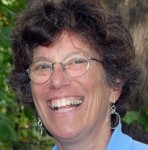
My Guests:
Andy Robinson & Nancy Wasserman: BFD: Board Financials Dilemma
What do you do for board members who can’t read your balance sheet? The authors of “The Board Member’s Easier Than You Think Guide To Nonprofit Finances” can answer that. Andy Robinson and Nancy Wasserman explain why understanding finances is critical so board members preserve your good work and protect themselves. Do their eyes glaze over when the numbers come out? We’ll help your board achieve financial literacy.
This originally aired on March 2, 2012 as show #81. This is show #540. Take a trip back in time with me. Of course, in 2021, your board members still need to understand your financials.


Listen to the podcast
Podcast: Play in new window | Download
Get Nonprofit Radio insider alerts!
I love our sponsors!
![]() Turn Two Communications: PR and content for nonprofits. Your story is our mission.
Turn Two Communications: PR and content for nonprofits. Your story is our mission.
We’re the #1 Podcast for Nonprofits, With 13,000+ Weekly Listeners
Board relations. Fundraising. Volunteer management. Prospect research. Legal compliance. Accounting. Finance. Investments. Donor relations. Public relations. Marketing. Technology. Social media.
Every nonprofit struggles with these issues. Big nonprofits hire experts. The other 95% listen to Tony Martignetti Nonprofit Radio. Trusted experts and leading thinkers join me each week to tackle the tough issues. If you have big dreams but a small budget, you have a home at Tony Martignetti Nonprofit Radio.
View Full Transcript
Processed on: 2021-05-28T21:26:02.848Z
S3 bucket containing transcription results: transcript.results
Link to bucket: s3.console.aws.amazon.com/s3/buckets/transcript.results
Path to JSON: 2021…05…540_tony_martignetti_nonprofit_radio_20210531.mp3.326205499.json
Path to text: transcripts/2021/05/540_tony_martignetti_nonprofit_radio_20210531.txt
Hello and welcome to tony-martignetti non profit radio big non profit ideas for the other 95%. I’m your aptly named host and it’s March 2nd 2012. [00:00:32.74] spk_3:
Who is that low energy uninformed imposter and that music. It’s May 31, This week’s show maybe from the deep archive, but that doesn’t mean we bring back a [00:00:36.73] spk_0:
Host from six ft under. [00:00:49.24] spk_5:
Hello and welcome to tony-martignetti non profit [00:02:24.44] spk_3:
Radio big non profit ideas for the other 95%. I’m your aptly named host of your favorite abdominal podcast. Oh I’m glad you’re with me. I’d get slapped with a diagnosis of Takayasu says arthritis if you inflamed me with the idea that you missed this week’s show B. F. D. Board financials dilemma. What do you do for board members who can’t read your balance sheet? The authors of the board members easier than you think. Guide to nonprofit finances can answer that. Andy Robinson and nancy Wasserman explain why understanding finances is critical. So board members preserve your good work and protect themselves. Do their eyes glaze over when the numbers come out, we’ll help your board achieve financial literacy. Yes. This originally aired on March two, That was show # 81. This is show # 540. So take a trip back with me in time. Of course, In 2021, your board members still need to understand your financials, Antonis take two planned giving accelerator. We’re sponsored by turn to communications pr and content for nonprofits. Your story is their mission turn hyphen two dot c o. Here is B F D Board Financials Dilemma. [00:03:08.34] spk_0:
Andy Robinson provides training and consulting for nonprofits in fundraising, board development marketing and earned income. He specializes in the needs of groups working for human rights, Social justice, environmental conservation, historic preservation and Community development. Nancy Wasserman has over 25 years of experience in community finance and social enterprise development. Her particular skill is working with clients on projects that must satisfy both financial and social or community goals. They worked together to co author the book, The board members easier than you think. Guide to Fund to nonprofit finances, published by Emerson in church. And I’m very glad that their collaboration brings them both to the show. Andy nancy. Welcome. Thank you. [00:03:17.16] spk_2:
Thank you. tony [00:03:18.37] spk_0:
Pleasure to have you both Andy. Pleasure to have you back [00:03:22.21] spk_2:
to talk [00:03:22.98] spk_0:
with you again. Thank you Nancy. Why is this important for board members to care about the financial condition of a charity? [00:03:45.04] spk_1:
Because that’s really what your charges as a board member, you have the responsibility to make sure the organization is achieving its mission, and the way the best way to do that is to make sure it has the resources it needs to do it. Um And the financial statements and the finance, nonprofit finances is how you know, um pretty quickly what’s going on, especially if you’ve you’ve got that information. You also have some responsibilities to the community um to deliver non profit um uh that does achieve its mission and does it in a responsible and fiduciary fiduciary appropriate way. [00:04:15.65] spk_0:
So board members are have a fiduciary duty to the charity, right? [00:04:20.82] spk_1:
Absolutely to the charity and to the public at large. [00:04:25.06] spk_0:
So why do you say the public at large? [00:05:01.24] spk_1:
Why? Because the the uh in the U. S. The Internal Revenue Service typically gives charities a uh nonprofit designation which allows them to receive contributions and issue um tax deductible receipts. And because the US is for going that tax um on those on those dollars and giving the public a public benefit, um the IRS exercises oversight of non profit charities and make sure that they really are, um, delivering on their charitable [00:05:03.78] spk_0:
purpose. So, there is some public money in here. It’s foregone foregone tax revenue [00:05:10.61] spk_1:
at a bare minimum. Often there’s also, uh, direct public money from government grants or government contracts. [00:05:19.64] spk_0:
And how about, um, financial problems that can occur within the, within the, um, within the charity? Like, um, you bring out an example in your book of, uh, people not getting their salaries paid, things like that, [00:05:44.34] spk_1:
you know, you there is that, that oversight potential here, you’re, you are running a small business and, um, you want to make sure that your employees are well cared for, that you’re achieving your mission in, in the world at large. Um, sometimes in, in charities will see folks um, you know, giving up salary, um, and, or, um, deferring payment um, out of the goal of achieving the mission of the organization in the long term, um, that seriously hurts the organization because um, people aren’t really watching what’s happening with the money. Where is it coming in? Where is it going out? [00:06:14.34] spk_0:
And Andy? Um, isn’t there potential personal liability for board members? When when there are problems like this, like nancy’s describing? [00:06:21.51] spk_2:
Well, let me do the disclaimer here, which is that neither nancy nor I or attorneys and we can’t give people legal advice. [00:06:34.24] spk_0:
Okay, Well, there’s no, yeah, I know we haven’t, nobody’s giving you a, I don’t know. The listeners have not given you a retainer fee, so not yet. No. [00:06:54.34] spk_2:
Okay. I will say this. Um, if there is non payment of payroll taxes, for example, if a sensation goes into debt doesn’t pay the I. R. S. Or state taxing agency’s board members are individually liable for that. Most most expenses. Board members are protected from being personally liable on but there are some exceptions. So I don’t know that that’s what drives this conversation. Board members are simply looking at the balance sheet as a way of making sure that they’re not personally liable. That’s one level on this conversation but there’s a whole lot more levels having to do with the stuff that nancy was talking about. Are we being efficient meeting our mission? Are we tracking our work so that we know we’re being effective and that’s really what financial management is about. [00:07:41.24] spk_0:
Indeed. Okay. There’s certainly a whole spectrum of reasons why board members should care. I just wanted to bring out the last one which is, there is the potential of, of personal liability. Um, let’s see. Um, we have just about a minute before a break and I’m hoping nancy, why don’t you introduce the idea of the financial dashboard and then we’ll talk a lot more about it right after this break. [00:08:27.44] spk_1:
Sure. The financial dashboard is something we introduced that, that really gives you a one page sense of how the organization doing. What I’ve found happens with a lot of Nonprofits is that they, um, they give their boards just reams of paper and um, all of a sudden you get the budget and the performance and the balance sheet and there’s 15 pages of financial statements and most board members, even ones who do know how to read financials don’t plow their way through it. And so the dashboard is essentially a one page um, opportunity to get a sense of um, how are you operating financially? Are you being efficient and um, are you having an impact? [00:08:36.84] spk_0:
Andy I want to throw a question to you quickly. We got a question on twitter from Mazarin. What if an executive director was found stealing one of the things nancy? And I were talking about uh, kind of fraud issues earlier. Um, would you give them a second chance? [00:09:12.94] spk_2:
Oh boy. Um, well, I’ll be curious to hear nancy’s answer to this. My initial response No, followed by. It depends. And um, I actually was on the board of an organization where we found the opposite problem, which was the board Executive director was pouring money into the organization. He emptied out his retirement account, but he wasn’t telling anybody he did this because the grants weren’t coming through and he was too embarrassed. [00:09:24.35] spk_0:
So that’s a, that’s a, that’s a problem of being over generous though, [00:09:28.57] spk_2:
it was paying for himself. We ended up firing the guy and the reason was he wasn’t disclosing to the board what the board needed to do its job. And I would say the issue in that case isn’t so much as misdirection lying. So I am obviously theft is a bad thing, but the board needs full disclosure from the executive director to be able to do their job well. And that’s really where I would go on that. [00:09:57.14] spk_0:
And how about you nancy? Uh Andy was curious to hear your answer and [00:10:35.14] spk_1:
I know I would say um again like Andy, it depends um probably depending on the amount of severity and this situation. Um You know, if if the executive director was borrowing $20 from the petty cash um when they forgot to bring um their wallet to work one day. Um clearly that’s not, not egregious enough to to fire somebody. But if uh they’re helping themselves to the uh to the checking account and redirecting grants into their own bank account probably caused fire them [00:10:41.92] spk_0:
even if they pay it back. Right. That really, even if they pay back with interest, that really doesn’t [00:11:01.04] spk_1:
matter, does it? I mean, the thing about nonprofits is, you know, they’re not your own private fiefdom or your own private business, there a community, um, engagement where the reason, you know, you have a board of directors that, um, are the final legal responsibility for the organization. Um, so you really shouldn’t be operating it like your own private business. [00:11:34.14] spk_0:
Let’s talk a little about the dashboard now nancy, the financial dashboard we introduced earlier. Um, it’s a one pager, which I think will be a relief to people is that they’re not getting a sheath of financial, uh, forms and, and, and balance sheets. But what, what, what do you think, what are key parts that should be in this financial dashboard? That to sort of streamline the overview for for board members? [00:13:19.34] spk_1:
Um I would say that that there’s really three parts to it. There’s a financial part where you’re looking at, you know, sort of what’s our total budget? Um You know, every board member of every organization should be able to very quickly say whether the organization is a $300,000 a year organization or $5 million a year organization? That’s sort of a basic um sense of scale. Um Are we making money or not? Um Do we have net income? Um uh Do we have cash on hand? Those kinds of questions? Um Do we uh do we have a network or we, you know, if everything had to be liquidated today? Um would there be any any money left over or any value left over? Um, that that was tangible value, not just, uh, goodwill. Um, we also want to be looking at at how efficient the organization is and efficiency changes depending on what the organization does. It’s, it’s really a sense of being able to measure you against yourself or against industry standards. Um, and it’s, you know, the, the level of what it costs to deliver, um, services, for example, to severely challenged populations versus what it takes to deliver services to, um, highly educated people in, uh, an urban area where they’re all easily able to get to something. Um, the cost levels are gonna be different. And, and we’re not saying that they should be the same, but to know, um, what it costs for you to serve your clients, um, what it costs to have volunteers, um, and then the impact. And I don’t know, Andy if you want to talk a little bit about that, uh, [00:14:00.04] spk_2:
how you measure whether you’re meeting your mission or not. And there are often new miracle measures that you can think about. You know, if you’re a land trust, how many acres are you preserving if you do mentoring with Children? How many adult Children matches do you have? I sometimes this is long term tracking, which is hard for a grassroots organizations to do. But in most fields there are ways of measuring your impact in terms of the number of clients you’re serving or the number of audience members who are involved. And hopefully there’s some measures that you can come up with that act. The quality of your work as well. Okay, So people here is, we could get this all on one page. You would have data from two years ago. You’d have data from last year, you’d have data from the current year. You could lay them out and see what the trends are. All [00:14:22.34] spk_0:
right. That’s the financial dashboard. I love how you guys have this little dance worked out where nancy talks about the financial and efficiency parts, but then she throws it over to a co author, uh Andy for impact and you have it all worked out sort of sort of taking the show over. But it’s ok. It’s in a good way. Um which which leads me to question. All right. So I have to ask when two of when you co author a book, how do you decide whose name comes first? Did you just do alphabetical order or did you flip a coin or uh See I’m too narcissistic to co author with anybody, but but how did you guys work that out? How did you decide [00:14:47.34] spk_1:
that? Andy Andy’s alphabetically. First on first names and last names. And um, the honest truth is is he did a lot of the writing work, um, where as I did help him with content. So it was very easy for me to go first. [00:14:58.48] spk_0:
All right. So if I had come in, you wouldn’t have looked only at martignetti you would have also looked at Tony and then I’d have fallen maybe to the bottom, uh, which is probably where I would have had much to contribute to this. So you’re wise not to take me even though I pitched you [00:15:13.78] spk_2:
otherwise, your name is well known in the community. We might have put your, [00:15:18.15] spk_0:
uh, your publisher would never have approved that. Um, one of the questions [00:15:23.80] spk_3:
that we asked before the [00:15:46.94] spk_0:
show that relates to what we’re talking about now is, um, do you believe all your board members have at least a general understanding of your financial position and 70% said yes, 30% said no. So that’s pretty good, 70%. But the 30% they’re not really very confident a general and that was just a general understanding. Um, Okay. So the, uh, that’s the dashboard. Um, Andy should these things be devoted only to the, the authority of a, of a finance committee? [00:16:19.64] spk_2:
No, I mean, I think a really good use of the finance committee is the oil stuff down. The rest of the board can understand it provides support to the rest of the board, serve as mentors and back up for the people on staff who were doing this. This book is not about how staff members need to do financial management more effectively. But the reality is a lot of people who are executive directors or even finance directors need help and one of the goals of Finance Committee is to give them that help when they need it. So a way to think about this is so excuse me, if the board is operating at a high altitude and the staff is down on the ground, flashing through the weed, the finance committee is sort of in the middle there providing a bridge between those two groups of people and [00:16:51.53] spk_0:
so that means that financial dashboard is for the whole board to review. Right? [00:16:55.99] spk_2:
Yes. How absolutely [00:17:10.44] spk_0:
was that? A heck yes. Is that you can say hell yes. Okay, Yes. Okay. We have another question on from twitter, um, reminding listeners, you can join the conversation on twitter using hashtag non profit radio board members need to look at the impact of the organization and I guess this is for you, since you talked about impact. How do you measure if you’re meeting your mission or not? I guess she’s looking for a little more detail. [00:17:22.20] spk_2:
Okay. Well [00:17:24.42] spk_0:
obviously depends what your mission [00:18:14.04] spk_2:
is. There are some standard benchmarks for how you’re doing. If you work with substance abuse, there are networks that do that, that can talk about ways of tracking your impact. For example, how many people come through a program get clean and stay clean if you are a food bank and you’re delivering food to the community. There’s a number of metrics there that come out of America. America’s harvest. I forget the name of the national network, but they’ll tell you how much money you should be spending more or less based on the population that you’re serving and how much he pounds of food you can put out into the community. Pretty much every nonprofit upset has some metrics that are relevant. And the trick is to learn the ones that are relevant type of organizations who, and then try and adapt them to your particular needs. [00:18:18.52] spk_0:
And that would be important for the executive director to be recognizing certainly. And then right. And then conveying that to the board. [00:18:25.04] spk_2:
Yes. And in some cases, depending on the size of the organization, there is some board work to help find those numbers. I mean, I work a lot with really small organizations who has, his staff are overwhelmed and would be great to say to a finance committee on a volunteer basis. I’m trying to figure out what the relevant metrics are for part type of organization who would be willing to do some research and bring that back to us aboard. But in a larger organization. Yeah, that’s going to fall the staff. [00:19:01.64] spk_0:
One of the other questions we asked pre show, does your board have a committee devoted to financial issues? About 80% said yes and the remainder roughly 20% said No. Um, Nancy, does there, does there have to be a finance committee? [00:19:48.74] spk_1:
Um, there does not have to be a finance committee. I think it really depends on the size of the organization. Um, the level of support that the director might need. You know, how complex the organization is and uh, also how savvy uh, the board is. If most of the board understands financials and feels quite comfortable with it in a small organization, um, you could get away without a finance committee. I’d say you want one in any organization that’s about to undertake any kind of major financial growth or change or, um, uh, new initiative um, in a larger organization. Um, it just is a great way to assist, um, either the finance manager or the executive director and developing budgets and exercising oversight because things don’t happen is exactly as people plan them to [00:20:17.64] spk_0:
with me today are Andy Robinson and Nancy Wasserman co authors of the board members easier than you think guide to nonprofit finances. Um, let’s, let’s talk some about diversifying income sources uh, nancy, you make a point of having that in a couple of chapters of the book. Um why is that important first? [00:20:30.64] spk_1:
You never want to be totally reliant on just one funder. Um You don’t want to be in a situation where um, if that one funder suddenly says, we don’t like what you’re doing, um that you’re suddenly scrambling and having to find uh, other ways to support your activities and your programs and what you do for the, for folks in the community. [00:21:01.74] spk_0:
I think we’ve seen a lot of that in, in our recession, uh, agencies that rely exclusively or too heavily on, say, government fees for services or maybe even government agency grants or, and, or foundation grants, uh, those of all sources that have been cut [00:21:44.34] spk_1:
back. Indeed, that’s true. And that’s part of what, um, it’s both diversifying types of financial support, but also, um, the number of supporters within each type, so you’re not totally reliant on just one foundation or one charitable donor, um, and, uh, and that you have that diversity of donors and foundations and government and, uh, your own revenues, If there’s a way for you to do that. [00:22:06.74] spk_0:
We have a comment again from twitter. Um, just gonna point out to, uh, the person who wrote that, john that we did talk earlier about individual personal liability for non profits. You may have missed that part of the show, but you can always catch it on the archive on ITunes and our itunes pages. non profit radio dot net. Um Then [00:22:08.54] spk_3:
what are [00:22:09.81] spk_0:
Andy some of the sources of income that a nonprofit might look to that they’re not currently exploiting. [00:23:09.44] spk_2:
There’s three big buckets here. tony The first book, It is private giving. Private giving is foundations, corporations, individuals and of course people leave behind when they pass away the big category there as individuals and within private giving about 80% of the money. Year after year comes from people and most of the groups that I work with don’t invest enough time and energy raising money from individual donors. So that’s the first category. Second category is public funding, that’s government funding from earl state, local, regional, municipal, all the government levels. And as you already indicated, this is a shrinking resource right now. And the groups that I think are getting hammered the worst during the recession or the that are relying on government. The third bucket is earned income, which is non profits arching for the services they provide are in some cases selling goods community and of the three, that’s the biggest of all this is sort of the surprise for people is that earned income is about the same amount as private and public funding put together when you look at all the nonprofit across the country. [00:23:24.14] spk_0:
That’s interesting. Yeah. You don’t generally see that in in fundraising reports like giving us a earned income is not part of their [00:23:29.40] spk_2:
private philanthropy. They’re very clear the numbers a little skewed because if you’re a private college and you’re charging tuition that shows up as earned income if you’re a private hospital and you’re charging a nonprofit hospital, you’re charging for medical services that shows up as earned income. So those numbers really sort of skew the data. But I work with a number of organizations where I’m always pushing them to say, is there something you do that you can package up and sell you have some skill that people would buy from you? [00:23:59.24] spk_0:
It’s time for a break. [00:24:57.64] spk_3:
Turn to communications, where would you like to be heard? News outlets, conferences, podcasts, blogs, that’s all earned media and turn to, can help you get it. They’ve got the relationships. What about your media that’s owned media turn to, can help you improve that as well because your story is their mission turn hyphen two dot c o. It’s time for Tony Take two planned giving accelerator is the online membership community that I have created to teach you how to launch your planned giving program. I’ll teach you step by step through trainings, live trainings, resources, podcasts, Ask me anything sessions. All of those are each month and we will get your plan giving [00:25:00.08] spk_0:
program launched [00:26:01.64] spk_3:
members of the first class, the one that started in january. Some of them already had gifts by three months in by March, so that three months into a 12-month class gift commitments already coming. So that can happen for you to you can be getting gift commitments in the first three months. The next class starts July one. I have priced this very reasonably, Especially when you consider, well, first of all, it’s just reasonable. But then when you consider that the average charitable bequest is $35,000. Take a look, it’s all at planned giving accelerator dot com And that is Tony’s take two. Yeah, we have boo koo but loads more time for B. F. D. Board financials dilemma. Mhm. Mhm. [00:26:05.74] spk_0:
Andy Robinson and Nancy Wasserman with me. We’re talking about BFG board financial dilemma. Andy earned income. What can a charity possibly do? What you should be looking at to try to make some money off their activities their work? [00:26:24.94] spk_2:
Well, the question I always ask groups that are wondering about this is what do you have, what do you do or what do you know somebody else ought to have or do or no most non profit during the service business. We deliver services. Sometimes we have expertise in that area and you know I mean there’s a structured brainstorm that people can do around this. A lot of what we do in the nonprofit world is pivot away and the really entrepreneurial organizations look at what they’re giving away and they say paying market for this and you know we can we can spend the rest of the show talking about this. I don’t know if you want to, but there’s a lot of opportunities there and I see many, many organizations could be more self sufficient financially if they got at figuring out what they know and how to package it up. [00:27:18.01] spk_0:
Is there an example you can share with us a charity that didn’t realize what they had and and then ended up being able to exploit it and make some money from it? [00:28:14.04] spk_2:
Well, I’m an author of a book on this subject called selling social change and what’s my favorite example of this? Um, you know, I’m for a group for years in Tucson Arizona called Native Search. Their seed banks on native american crops and you know what they do is protect beats from going extinct by planting them and growing them and distributing them and probably 30% of their of their income. It’s details, their seed bank and they sell it. What they recently started doing, which was fascinating is they opened something they called the school and these are people who want to learn about how to protect seeds, grow them, pass them on to the next generation’s really about biological and genetic. Pay money and they come to Arizona for a week and they get trained and everything you need to know to run your own seed bank. And it’s an organization that was sitting on this for probably 30 years, only recently realized that people would pay for that knowledge in a classroom setting. They [00:28:29.49] spk_0:
have been doing that all for [00:28:30.41] spk_2:
free. They hadn’t been training other people, they’ve been taking care of the seeds, but they hadn’t been teaching. I see, okay. And they realized there are a whole renaissance of local agriculture in our country right now and they thought we could tap into this. There’s a market here for people who want to learn how to do this. And so they started doing this and they’re doing this four or five times a year and it sells out and they’re starting to move it around to other parts of the country. So that’s one example. [00:28:54.90] spk_0:
That’s an example of knowledge. They had a knowledge and a skill that was very marketable. [00:29:12.54] spk_2:
That’s right. And until you have what you need for better worse is you need someone in the organization who has an entrepreneurial jean who can look around and say, you know what, somebody’s going to want to buy this. And not every nonprofit is blessed with people who think that way. And I think part of what nancy and I are trying to do in our professionalized is to get more of that thinking out into the nonprofit community way [00:30:07.24] spk_0:
and the related to uh diversifying income. I I had a comment from linked in this, uh, woman had just had a board meeting this earlier this week regarding the need for transparency and distribution of responsibility. When it comes to the finances, bookkeeping and reporting function of their historic nonprofit theater, they’ve been doing their thing. Uh, they’ve been doing things their way a long time. And one big problem is that they have a banker on the board and he doesn’t see the problems. Um, uh, so it sounds like, and and then she says, I was able to get the check writing privileges moved to another person. This is sort of segue into a conflict of interest conversation, but sounds like maybe he was the only one writing checks. Um, I secured a nice grant from a foundation and they want a financial audit. I’m moving for a review. However fear we won’t get any more money once it’s known how ignorant the board is about accountability uh nancy. Uh And he’s laughing nancy. Let’s bring you back. What would you what would you say there? [00:31:44.94] spk_1:
Well you know how are we defining accountability here? Is there a lack of what a financial audit might uncover? Um Is impropriety? But it sounds like that’s not the case. Um More likely it’s going to um It’s not the financial audit per se but the form 9 90 that you file with the I. R. S. Which ask you now to tell us, does does the boards look at financials um How does is the board of informed, has the board seen an audit? Um uh Did they review it and approve? Um It’s really um you know there there’s sort of two sets of questions. The very pragmatic, did did you get an audit? Did you review it? Did you look at it? Um And then the more important question in my mind, which I think is the question we’re trying to answer with the whole book, which is, does the board really understand what all these numbers are telling them? And ideally with with a financial audit and accountant has come in and um, spoken directly with the board of directors and walked through each and every page of it and talked about why the financials are the way they are and what they mean. Um And I think both Andy and I have seen numbers of organizations where um there’s a lot of people sitting around the table and they leave it to the banker, um or the investment professional to, you know, they they know about numbers and they handle it and it’s really something that everybody needs to know how to do. Um, if only to make sure that the mission of the organization is uh, fully addressed by the board and the organization. [00:32:28.44] spk_0:
This also relates to the conversation about diversifying income. I mean, here this woman, uh, I believe she’s a fundraiser, there, a volunteer fundraiser and uh, trying to diversify income source, getting a grant but fearful that the grant may not be renewed because there isn’t transparency and accountability that the, the the grant source will probably be seeking. [00:32:45.74] spk_2:
And this is another point that was raised, sort of came out of sideways. Is this question about separation of duties, which is, you know, in a healthy organization, people break up that work. One person opens the envelope and somebody else writes the checks and somebody else approves them and somebody else gets the bank statement and balances the checkbook. And the idea here is that you’re trying to avoid mischief and fraud and if somebody says, oh I’ll take care of all of these things, maybe they have good intentions and they’re going to be perfectly honest about it. But you really need to break that into separate pieces so people can have oversight over each other. [00:33:15.64] spk_0:
Let’s segue into the conflict of interest, um, Andy defined for us. What a conflict of interest is here. It’s so often, [00:33:58.74] spk_2:
Well, my sense of it, at least in terms of the context we’re having here, is that if you serve on a nonprofit board, your job is to put the needs of the organization above your own personal needs. And where this plays out sometimes is people who try and receive a benefit from serving on a board. That the personal benefit that has nothing to do with advancing the mission of the organization. Where this gets tricky is that in a lot of voluntary organizations, there are inherent conflicts of interest. But if you goes to a private school and you’re on the board, your job is to advocate for policies that are going to benefit the Children in the school, and in some case that means they’re going to benefit your kid individually and sort of sorting those things out can be challenging. But the bottom line is the decisions you make have to put the needs of the organization in front of your own personal need [00:34:19.83] spk_0:
nancy. How can we try to avoid conflicts of [00:35:47.04] spk_1:
interest? One of the best ways is to have a written conflict of interest policy where you’ve already addressed some of the situations that are likely to happen before they happen, um, where you sit there and say, you know, define what it is that is seen as either a real conflict of interest or perceived conflict of interest, which might be a case where um, somebody was, for example, can somebody bid somebody who serves on the board of directors bid on a project while they’re still on the board of directors or not? Or do they have to resign before they even submit a bid? Or do they only resign if they’re awarded the bid, or do they have to resign? Or can they simply step out of the room for the discussion? Um Those are the kinds of questions that got kind of uh can get kind of challenging, um, particularly when any member of the board stands to benefit financially, um, from any decision of the board. Um That’s uh an outright in my mind and outright conflict of interest. Um, and, um, in most boards, you want to make sure that person doesn’t participate. And it’s, it’s always easier to have that discussion, um, when there isn’t a hot potato sitting in the room, that’s, um, somebody’s thinking that they have every right to be part of the discussion. Um, and you have to therefore bring up both the fact that somebody in the room is feeling uncomfortable that this person is present. Um, and, um, it gets a little bit more tense in those sorts of situations. Prevention is having a written policy that folks have already talked through and everybody feels responsible for making sure it’s enforced. [00:36:11.93] spk_0:
So prevention ahead of time much better than dealing with it when it’s a, a crisis or a potential crisis. [00:36:13.83] spk_1:
Right? And, you know, it also, um, is the transparency issue you want to make sure that your presentation to the community at large is um, is as an accountable organization, um, that that gives everybody um equal opportunity to benefit from um, the organization’s purchases. [00:36:34.49] spk_0:
Is this the kind of policy that a board member should sign and review every year or something [00:37:00.13] spk_1:
like that? It’s not a bad idea. Oh, you know, it depends on the nature of the organization. I you know, I’ve worked with a community loan fund and that’s absolutely required that you disclose um your conflicts of interest each and every year and that you review the conflict of interest policy every year. Um The other thing that’s incredibly important is disclosed, disclosed, disclosed. [00:37:05.21] spk_0:
We have just a minute before a break and anything you want to add to conflict of interest discussion. [00:37:11.17] spk_2:
I think the main thing is that if you see it, you have to name it after. If your board member and you smell something like this, you have to have the courage to bring it up. And as nancy said, it’s much easier to do this if there is an existing policy in place first, [00:37:23.56] spk_0:
if somebody sees something like this Andy again, just a few seconds before a break, who should they bring it up to you? I’m a board member. Who do I talk to? [00:37:39.83] spk_2:
Probably go to the chair first and say, I think there’s something fishy here, let’s talk about it and I would start there and then presumably the board, the chair will bring it to the full board. Mhm. Mhm [00:37:50.53] spk_0:
Welcome back to big non profit ideas for the other 95% on Tony-Martignetti non profit radio nancy, let’s talk a little about financial statements. What [00:37:53.91] spk_3:
what uh what are the basics [00:37:55.71] spk_0:
first, what’s the [00:38:11.62] spk_1:
overview? Um there’s really two major statements that everybody um has to deliver ones the balance sheet, which is a snapshot on any given day. Um Typically the end of the month or the end of the quarter the end of the year, um Which outlines um what the organization owns and what they owe and what they’re worth, which is the difference between everything they own. Um less everything they owe um As far as its paper value is what they would be worth on that day. Uh The other major statement is the statement of activities, also called the profit and loss or A. P. And L. Um Which is where do you get all your money, your income, your revenues from. Um And then what does it go to pay for all your expenses? And the bottom line there is your net income at the end of and of a certain time period. Uh The statement of activities is more like a movie. It covers a period of time. Uh Typically uh the beginning of the year to the end of the most previous sorry the most recent months. Um So if we were on a board uh today we probably wouldn’t see the the statement of activities through the end of february because somebody would have had to have it all cleaned up as of yesterday, but we could expect to see something through the end of january. Um And depending on what your fiscal year was um would determine the beginning period. [00:39:45.42] spk_0:
We talked earlier about full disclosure. So I’m gonna make a disclosure. The only accounting course that I’ve ever taken I dropped out of because I was I was I was going to fail. So um so I’m perfect for this book. This it’s very informative and it is an easy read and it is helpful guide um nancy help me understand this was always seem like magic to me on a balance sheet. How is it that the assets equal to the liabilities? How does that always come out? So equal? I mean uh it’s intended that way obviously, how does that [00:40:01.35] spk_1:
possible? It seems like um now you’re asking somebody who was not trained as a classically trained accountants, [00:40:07.75] spk_0:
you can’t pull back. Now your name is on the book, your name is there, I’m looking right at it says nancy Wasserman, [00:40:12.49] spk_1:
but it’s um it’s based on double entry bookkeeping which was developed by the chinese and it’s uh follows up from the abacus and um really was sort of uh uh amplified by the Italians in the renaissance essentially when you put an entry in double entry book, keeping everything that goes up, something has to go down and uh it all balances out in the end and the cash comes out. And if your balance sheet that’s like number one, if the balance sheet, if the total assets does not equal the total liabilities and equity, um it is an incorrectly prepared balance sheet and they call it a balance sheet. [00:40:51.96] spk_0:
Right? Yes, exactly, I love that my italian forebears had something to do with confusing me now in the current day. Um Okay, what how can we help uh Board members nancy, who whose eyes kind of glaze over when they get to the balance sheet, Aside from looking to see whether the two uh the assets and liabilities equal, which they always [00:42:08.60] spk_1:
do right. Step number one, the balance. Um Number two, um Do your total current assets, in other words, what what can be cash within a year’s time, um exceed your current liabilities? The things you have to pay off with cash in a year’s time. And so are you liquid or not? Do you have, do you have cash available to do things? Um This is the place where you’re looking for those payroll liabilities or payroll tax liabilities. If there’s a number there that’s frighteningly large, um you’ve got a big problem and if it’s payroll tax liabilities, um you as a board member may be personally liable. Um What are your long term liabilities look like? Is that that’s your debt basically. And you know, does it make sense to you? Is that number reflects the debt? You know the organization has um your net net assets. Now, you know the language of accounting is kind of like greek and um I sometimes think they made up all these names to make it even more confusing. [00:42:17.36] spk_0:
It would be so much easier if it was, it was italian, [00:42:19.74] spk_1:
it could be, [00:42:21.37] spk_0:
it would be, it would, there’s lots of cognitive and it’s a romance language. I think it would be, I’m sorry. [00:42:56.20] spk_1:
No problem. But that total net assets number, which simply means, you know what this organization more. Um, if it, if it had to liquidate today and um, if that’s a negative number, you should be concerned. Um, and, and there’s certainly many organizations where that is the case. Um, so those are the big things on the balance sheet. You know, does it, does, it sort of makes sense to you to the fixed assets and their value. Um, feel like what you have if you suddenly see something that shows that you have a fixed asset of, you know, equipment worth $100,000 and you’re scratching your head because you have no idea what you have for equipment. Um, Something’s wrong with the balance [00:43:10.68] spk_0:
and you should and should ask that question. Absolutely. You mentioned earlier frighteningly large numbers, I mean, is part of what we should be doing, looking for anomalies. [00:44:01.79] spk_1:
Um That’s really what you’re looking. You’re looking for things that, you know, that don’t make sense or don’t feel right or that you can’t um if you can’t, if it doesn’t feel right and you can’t really explain it, you want to ask questions. Um, and, and the numbers, you know, the thing about numbers is um, they’re pretty um, they’re very, you know, they’re either on or off and um, it’s harder to lie with numbers. Um, so you’re gonna know right away that you could have frighteningly large numbers with a, with a complex organization and that would be fine. Um, if if they’re they’re balanced out, if there’s cash in the bank, if it feels like there’s equity. [00:44:37.09] spk_0:
Mm This is a critical subject. Another question that I asked on the, on the pre pre show survey is for those charities that do have a board committee devoted to financial issues. Are you confident that each committee member is fluent in your numbers and understand your financial position? Only 25% said yes. The remaining 75% were either no or not sure and no was pretty large. About 60%. We have to stop there. Andy Robinson and Nancy Wasserman are co authors of the board members easier than you think. Guide to nonprofit finances published by Emerson and Church Andy Nancy. Thank you very much for being guests. [00:44:50.52] spk_1:
Thank you Tony. [00:44:56.59] spk_0:
Thanks for having us. It’s been a real pleasure. And also thanks to your publisher, Kathleen Brennan at Emerson in church for her promotion assistance for the show. [00:45:35.69] spk_3:
That was fun. A bit of nostalgia. I had to keep in a short burst of eye of the tiger had had to do that. Thank you for ramping back in time with me Next week. Our 2021 nonprofit technology conference coverage continues. Oh, conference coverage continues. I like that. If you missed any part of this week’s show, I beseech you find it at tony-martignetti dot com. We’re sponsored by Turn to communications pr and content for nonprofits. Your story is their mission turn hyphen two dot c o. [00:45:49.59] spk_5:
Our creative producer is Clan Meyerhoff shows, social media is by Susan Chavez. Mark Silverman is our web guy and this music is by scott Stein. Mhm Right, thank you for that. Affirmation scotty be with me next week for nonprofit radio Big non profit ideas for the [00:45:56.39] spk_3:
Other 95 [00:45:58.99] spk_5:
go out and be great.





 Do you know that a big email list may be worse than a smaller one? Have you got ghosts or zombies in your lists? This all matters if you want your emails to land in inboxes instead of junk. Judy Freed, from
Do you know that a big email list may be worse than a smaller one? Have you got ghosts or zombies in your lists? This all matters if you want your emails to land in inboxes instead of junk. Judy Freed, from 